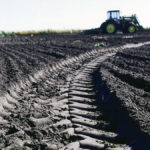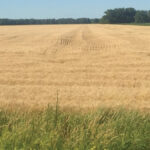Q: How does compaction affect soil? A: Soil compaction is the removal of the pore spaces in soil. In our agricultural fields, soil compaction is categorized under two types — surface contact pressure and axle load. Surface contact pressure compaction occurs in the top 12 inches of the soil. It occurs whenever there is contact […] Read more













